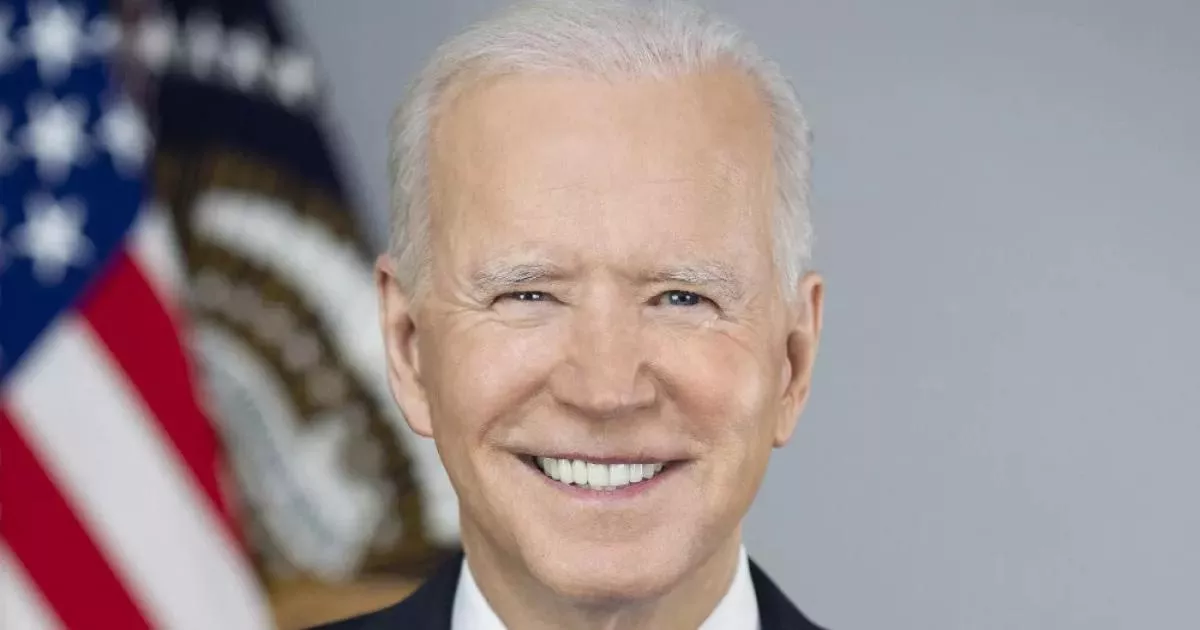A closer look at the defining struggles that shaped Joe Biden's life and career.
Joe Biden, a member of the Democratic Party, served as the 46th U.S. president (2021-2025). Before his presidency, he was the 47th Vice President under Barack Obama (2009-2017) and represented Delaware in the U.S. Senate (1973-2009).
December 18, 1972: Death of Wife and Daughter
On December 18, 1972, Joe Biden's wife, Neilia, and one-year-old daughter, Naomi, died in a car accident in Hockessin, Delaware.
1980: Biden is the first incumbent president to lose a contest while appearing on the ballot since Jimmy Carter in 1980
Biden lost the American Samoa contest to venture capitalist Jason Palmer, becoming the first incumbent president to lose a contest while appearing on the ballot since Jimmy Carter in 1980.
September 23, 1987: Withdrawal from Presidential Candidacy
On September 23, 1987, Joe Biden withdrew his candidacy for the 1988 presidential election.
February 1988: Surgery for Intracranial Berry Aneurysm
In February 1988, Joe Biden underwent surgery to correct a leaking intracranial berry aneurysm after experiencing severe neck pain.
1988: Unsuccessful Presidential Nomination Bid
In 1988, Biden ran unsuccessfully for the Democratic presidential nomination.
1992: Public perception of economy worse than in 2024
According to Gallup, public perception of the economy in 1992 was worse than in 2024.
January 3, 2008: Withdrawal from 2008 Presidential Race
On January 3, 2008, Joe Biden placed fifth in the Iowa caucuses and withdrew from the 2008 presidential race that evening.
2008: Public perception of economy worse than in 2024
According to Gallup, public perception of the economy in 2008 was worse than in 2024.
April 2009: Biden's Swine Flu Remark and Retraction
In April 2009, Joe Biden's off-message response to a question during the beginning of the swine flu outbreak led to a swift retraction by the White House, reviving his reputation for gaffes.
July 2009: Biden Acknowledges Economy Misread
In July 2009, facing rising unemployment, Joe Biden acknowledged that the Obama administration had "misread how bad the economy was" despite overseeing infrastructure spending from the stimulus package.
May 2011: Reports Suggest Biden Opposed Bin Laden Mission
Some reports suggest that in May 2011, Joe Biden opposed proceeding with the U.S. mission to kill Osama bin Laden, fearing failure could hurt Obama's reelection.
2011: Daley's Secret Polling on Replacing Biden
In late 2011, White House Chief of Staff William M. Daley conducted secret polling and focus group research exploring the possibility of replacing Joe Biden with Hillary Clinton as Obama's running mate, but the idea was eventually dropped.
October 2013: Biden Cut Out of Government Shutdown Talks
In October 2013, Joe Biden played little part in discussions leading to the passage of the Continuing Appropriations Act, 2014, resolving the federal government shutdown. He was cut out of direct talks due to concerns about previous negotiations.
2013: Biden's memory during classified documents investigation
During the investigation into Biden's handling of classified documents, in 2013 special counsel Robert Hur noted that Biden struggled to recall when he served as vice president and when his son Beau died, suggesting significant limitations in his memory.
2015: Biden Considers a Presidential Run
In mid-2015, Joe Biden was encouraged to consider entering the 2016 presidential race, especially given Hillary Clinton's declining favorability. He ultimately announced in October that he would not run, particularly due to the recent death of his son Beau.
2016: Biden Considered Presidential Nomination
During his second term and into 2016, it was often said that Joe Biden was preparing for a bid for the 2016 Democratic presidential nomination, but he eventually decided not to run.
March 2019: Accusations of Inappropriate Physical Contact
In March 2019, multiple women accused Joe Biden of inappropriate physical contact.
September 2019: Trump Pressures Ukraine to Investigate Biden
In September 2019, it was reported that Donald Trump pressured Ukrainian president Volodymyr Zelenskyy to investigate alleged wrongdoing by Joe Biden and his son Hunter Biden, leading to a political scandal and Trump's impeachment.
February 2021: Ending Support for Saudi-Led Campaign in Yemen
In February 2021, the Biden administration declared an end to U.S. support for the Saudi-led bombing campaign in Yemen and reversed the designation of Yemen's Houthis as terrorists.
August 2021: Biden's Approval Rating Begins to Decline
In August 2021, Biden's approval rating began to decline, attributed to the Afghanistan withdrawal, increasing hospitalizations from the Delta variant, high inflation and gas prices, disarray within the Democratic Party, and a general decline in popularity customary in politics.
2021: Biden revokes Trump's security clearance
In 2021, Biden revoked Trump's security clearance for his role in inciting the January 6 Capitol attack.
2021: Inflation Surge Overshadows Biden's Presidency
The 2021 inflation surge overshadowed Joe Biden's presidency.
February 2022: Russian Invasion of Ukraine and U.S. Response
In February 2022, after weeks of warnings, the Russian Armed Forces, under President Vladimir Putin, invaded Ukraine. In response, President Biden imposed severe sanctions on Russia and authorized over $8 billion in weapons shipments to Ukraine.
February 2022: Counterterrorism Raid in Syria
In early February 2022, President Biden ordered a counterterrorism raid in northern Syria, which resulted in the death of Abu Ibrahim al-Hashimi al-Qurashi, the second leader of the Islamic State.
June 2022: Inflation Peaked at 9.1%
In June 2022, inflation peaked at 9.1% during Biden's presidency.
July 21, 2022: Biden tests positive for COVID-19
On July 21, 2022, Biden tested positive for COVID-19, experiencing reportedly mild symptoms. He was treated with Paxlovid, according to the White House. He worked in isolation for five days and later returned to isolation after another positive test on July 30.
November 2022: Discovery of Classified Documents at Penn Biden Center
In November 2022, President Biden's attorneys discovered classified documents from his vice presidency in a "locked closet" at the Penn Biden Center. The documents were reported to the U.S. National Archives and recovered the next day.
December 2022: No TikTok on Government Devices Act
In December 2022, Biden signed the No TikTok on Government Devices Act, prohibiting the use of TikTok on devices owned by the federal government.
2022: Congress Approves Aid to Ukraine
In 2022, Congress approved approximately $113 billion in aid to Ukraine in response to the Russian invasion.
January 11, 2023: House Investigative Committee into Hunter Biden's Business Activities
On January 11, 2023, the House of Representatives launched an investigative committee into the foreign business activities of President Biden's son, Hunter, and brother, James. The committee also investigated alleged corruption related to the Hunter Biden laptop controversy.
February 4, 2023: Shooting Down of Chinese Surveillance Balloon
On February 4, 2023, President Biden ordered the United States Air Force to shoot down a suspected Chinese surveillance balloon off the coast of South Carolina, leading to further damage in U.S.-China relations.
October 2023: Biden's Approval Rating Among Democrats Reaches Record Low
By October 2023, Gallup reported that Biden's approval rating among Democrats had reached a record low of 75%.
October 2023: Hamas Attack on Israel and US Response
In October 2023, Hamas launched a surprise attack on Israel, leading to intensified conflict. President Biden affirmed support for Israel, condemned Hamas, deployed aircraft carriers to the region, and requested $14 billion in aid to Israel. He also pressured Israel to address the humanitarian crisis in Gaza and supported "humanitarian pauses".
October 2023: Biden Administration Requests Additional Aid for Ukraine
In October 2023, the Biden administration requested an additional $61.4 billion in aid for Ukraine for the coming year. The request faced delays in Congress.
December 13, 2023: House Vote to Formalize Impeachment Inquiry
On December 13, 2023, the House of Representatives voted 221–212 to formalize an impeachment inquiry into President Biden.
December 2023: No Evidence of Wrongdoing by Biden
As of December 2023, congressional investigations, including by the House Oversight committee, have discovered no evidence of wrongdoing by President Biden.
2023: Biden undergoes Mohs surgery
In 2023, Biden underwent Mohs surgery to remove skin cancer lesions from his forehead, following a previous removal of a basal-cell carcinoma from his chest.
2023: Biden's Approval Rating Lowest of Modern Presidents After Three Years
In 2023, Biden's approval rating was recorded as the lowest of any modern U.S. president after three years in office.
2023: Inflation Surge Overshadows Biden's Presidency
The 2023 inflation surge overshadowed Joe Biden's presidency.
February 2024: Alexander Smirnov charged with making false statements
In February 2024, Alexander Smirnov, a former intelligence informant involved in bribery allegations against Biden, was charged with making false statements. Smirnov admitted to spreading a false story provided by Russian intelligence to damage Biden's reelection campaign.
February 29, 2024: Killing of Palestinian Civilians Receiving Food Aid
Following the killing of Palestinian civilians receiving food aid on February 29, 2024, President Biden acknowledged that the current level of aid flowing into Gaza was insufficient.
March 2024: Public Disapproval of Israeli Conduct
Despite President Biden's support for Israel, a March 2024 Gallup poll indicated that a strong majority of Americans disapproved of Israeli conduct during the war.
April 2024: Gaza War Protests on University Campuses
Beginning in April 2024, widespread protests emerged on university campuses, denouncing President Biden's stance on the Gaza war.
April 2024: Protecting Americans from Foreign Adversary Controlled Applications Act
In April 2024, President Biden signed the Protecting Americans from Foreign Adversary Controlled Applications Act, potentially banning social networking services controlled by foreign adversaries, particularly ByteDance Ltd., the parent company of TikTok.
May 2024: Limited Use of Weapons Against Russian Targets
In May 2024, Biden granted Ukraine permission to use U.S.-supplied weapons against Russian military targets in the vicinity of Kharkiv for "counter-fire" purposes.
May 2024: Increased Tariffs on Chinese Imports
In May 2024, the Biden administration doubled tariffs on solar cells and more than tripled tariffs on lithium-ion electric vehicle batteries imported from China. Tariffs were also raised on steel, aluminum, and medical materials.
May 31, 2024: Biden's Support for Israeli Ceasefire Proposal
On May 31, 2024, President Biden announced his support for an Israeli ceasefire proposal in the Gaza conflict, stating that Hamas was "no longer capable" of a large-scale attack. Despite international support, the Netanyahu administration's conditions for a ceasefire remained unmet.
June 2024: Public concern about Biden's mental acuity
In June 2024, the media widely covered public concern regarding Biden's mental acuity following a perceived weak performance in a presidential debate. After the 2024 election, Biden suggested that he might be too old to serve a second term, despite initially stating he was fit for two terms.
June 27, 2024: First presidential debate between Biden and Trump
On June 27, 2024, the first presidential debate was held between Biden and Trump. Biden's performance was widely criticized, with commentators noting his meandering answers. Polling indicated that most viewers believed Trump won the debate, raising questions about Biden's health and age and leading to calls for him to withdraw from the race.
July 2024: Biden's Approval Rating Falls to All-Time Low
In July 2024, just before he withdrew from the 2024 presidential election, Gallup found that Biden's approval rating had fallen to an all-time low of 36%.
July 17, 2024: Biden tests positive for COVID-19 again
On July 17, 2024, Biden tested positive for COVID-19 again.
August 2024: US Aid to Afghanistan
As of August 2024, the U.S. remained the biggest aid donor to Afghanistan, spending at least $20.7 billion post-withdrawal, which has helped support the Taliban government and stabilize Afghanistan's economy.
September 25, 2024: House Resolution Condemning Afghanistan Withdrawal
On September 25, 2024, the United States House of Representatives passed a resolution condemning the Biden administration for the U.S. withdrawal from Afghanistan, with ten Democrats and all Republicans voting in favor.
December 2024: Gallup Poll Assesses Biden's Presidency
A December 2024 Gallup poll found that 54% of Americans thought Biden's presidency was below average or poor, 26% average, and 19% above average or outstanding. Americans largely offered negative assessments of Biden's presidency on economic, national, and international issues.
2024: Public Frustration Over Inflation Deems Biden's Presidency a Failure
In 2024, Amy Walter argued that the public deemed Biden's presidency a failure particularly due to frustration over inflation. According to Gallup, public perception of the economy in 2024 was worse only in 2008 and 1992.
2024: Harris's Loss to Trump Contributes to the Failure of Biden's Presidency
In 2024, Kamala Harris's loss to Donald Trump in the presidential election contributed to the perception that Joe Biden's presidency was a failure.
2024: Withdrawal of Candidacy
In 2024, after renewed scrutiny of his age and health, Joe Biden withdrew his candidacy for reelection.
2024: Biden's campaign in the 2024 Democratic presidential primaries
In the 2024 Democratic presidential primaries, U.S. Representative Dean Phillips ran against Biden, campaigning as a younger alternative. Biden won the New Hampshire primary with 63.8% as a write-in candidate and won South Carolina with 96.2% of the vote. Biden received 89.3% of the vote in Nevada and 81.1% of the vote in Michigan. On Super Tuesday, March 5, 2024, he won 15 of 16 primaries. On March 6, Phillips suspended his campaign and endorsed Biden. On March 12, Biden secured the Democratic nomination.
January 2025: Biden claims he could have defeated Trump
In January 2025, Biden claimed he could have defeated Trump had he not been persuaded to withdraw from the election. Trump defeated Harris in the general election in 2024. A YouGov poll conducted on November 6–7, 2024, found that if Biden had been the Democratic nominee, Trump would have won the popular vote by 49% to 42%.
May 18, 2025: Biden diagnosed with aggressive prostate cancer
On May 18, 2025, it was announced that Biden had been diagnosed with aggressive prostate cancer with bone metastasis during a routine physical examination. He confirmed that he had begun treatment on May 30.
2025: Biden's age and cognitive health in 2025
As of 2025, Joe Biden was the oldest sitting president in U.S. history. Concerns were raised about his cognitive health by Republicans, some media figures, and privately by some Democrats. His family and White House staff reportedly shielded him from scrutiny related to his aging and perceived decline in acuity.
2025: Journalists View Biden's Presidency as a Failure
When Joe Biden left office in 2025, journalists and many Democrats viewed his presidency as a failure due to age and health concerns, public frustration over inflation, and Harris's loss to Trump in the 2024 presidential election.
Mentioned in this timeline

Lady Gaga born Stefani Joanne Angelina Germanotta is a highly...
TikTok also known as Douyin in China is a social...

Donald John Trump is an American politician media personality and...

Bernie Sanders is a prominent American politician currently serving as...

Vladimir Vladimirovich Putin is a Russian politician and former intelligence...
Home Box Office HBO is an American pay television service...
Trending

11 months ago Stephon Castle Predicts Final Four, Spurs Prank Rookie, Tennessee's March Madness Hopes

4 months ago Keegan Murray sidelined with UCL tear and thumb injury: Kings face setback.

Randy Poffo known as Macho Man Randy Savage was a prominent figure in professional wrestling notably in WWF and WCW...

3 months ago Lakers Defeat Trail Blazers 123-115, Smith shines as unexpected hero alongside Hachimura.

4 months ago Denis Shapovalov discusses marriage, balance, comeback, and upcoming matches in Paris and Basel.

3 months ago Bronny James' Second Lakers Start: Stats, Points, and Reaction Amidst Injuries.
Popular

Kid Rock born Robert James Ritchie is an American musician...
The Winter Olympic Games a major international multi-sport event held...

XXXTentacion born Jahseh Dwayne Ricardo Onfroy was a controversial yet...

Barack Obama the th U S President - was the...

Michael Jordan often known as MJ is a businessman and...

Melania Trump a Slovenian-American former model has served as First...
